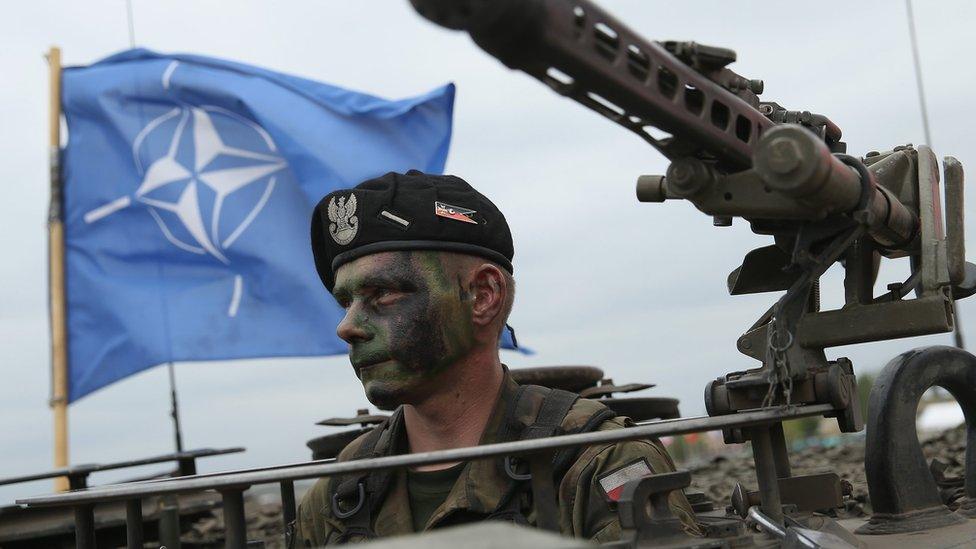Trump team relish world stage but struggle with European quirks
- Published
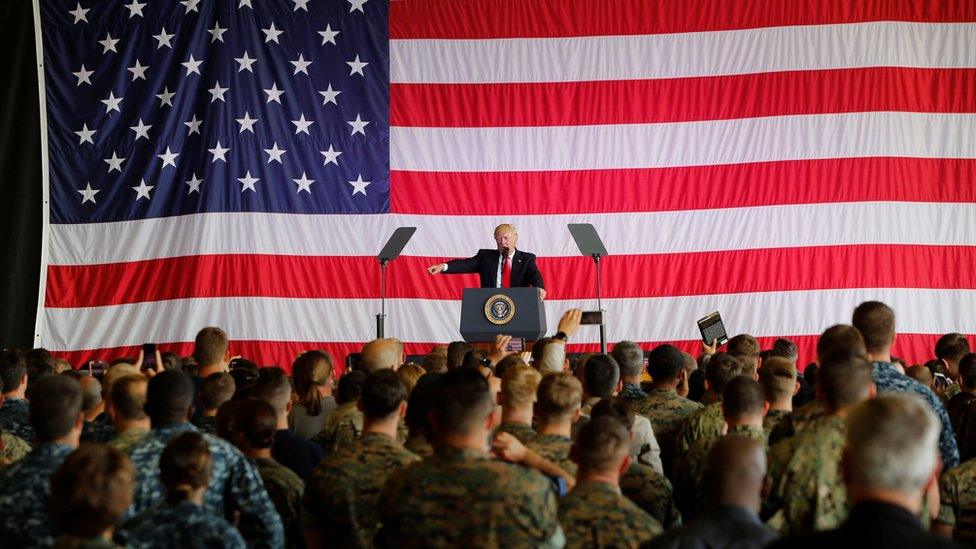
Donald Trump is unapologetic about his "America first" policy
"This is ours." Those were the words Sean Spicer, the White House press secretary, told the president's chief economic adviser, Gary Cohn, while looking at a podium in a hotel room on Friday.
Mr Spicer added: "We own it." Mr Cohn repeated his words, and they both smiled as if they were sharing a joke.
The lectern they were looking at was nothing fancy. It had four fake-wood panels, and cords were taped to a carpet at its base.
Yet the podium was - at least for the moment - a symbol of something bigger: the world stage and the role the US plays on it.
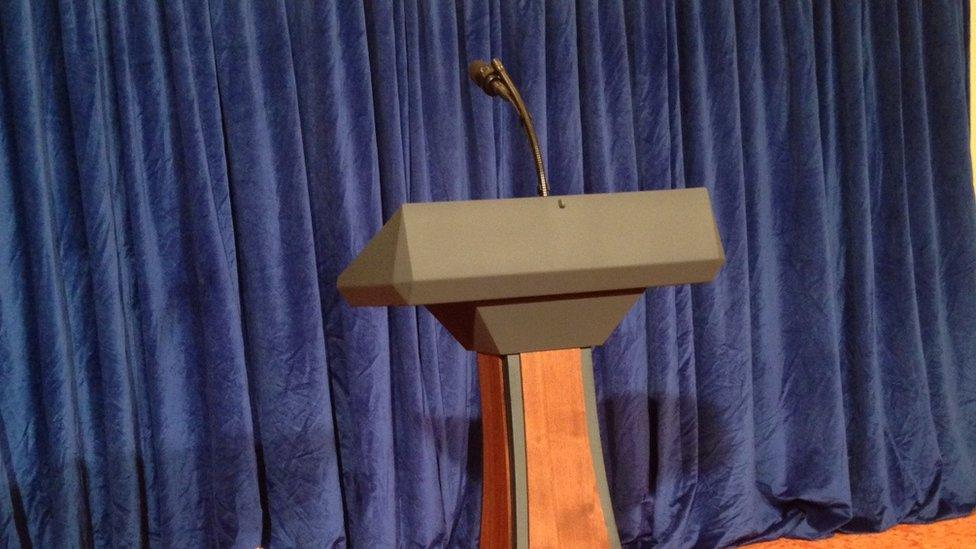
The Trump administration feels ready to take the world stage
In Brussels, Mr Trump focused on Nato. At the G7 summit in Taormina, he spoke about trade. Along the way he and his aides learned things about the European continent and expressed ideas that will shape the presidency in the months to come.
The podium reinforced the main message of the president and his aides: the world stage is ours, and we will do as we please.
During the trip, British officials became angry when information about the Manchester terrorism investigation was leaked to US journalists. President Emmanuel Macron of France tried to make Mr Trump pay attention - with a crushing handshake that turned his knuckles white.
Meanwhile news reports appeared about the president's son-in-law, Jared Kushner, a senior adviser to the president, and his alleged ties to Russia. Yet the White House aides remained steadfast in their mission to craft a Trumpian foreign policy and reinforce American power.
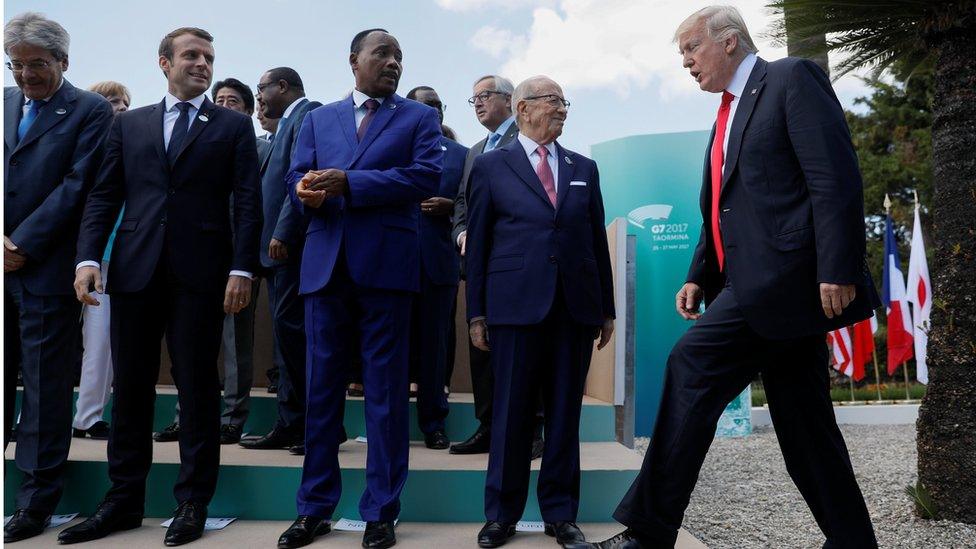
Mr Trump is ready to expand America's role on the world stage, aides say
The advisers and many analysts said that the trip to Europe had helped the president develop a broader view of international issues.
"His views are evolving," said Cohn about how the president sees environmental issues and other matters. "He came here to learn and get smarter."
Lawrence Korb, a former assistant defence secretary, said: "He's coming to grips with the reality of the world." Matt Mackowiak, a Republican political consultant, agreed: "He's learned the issues are quite a bit more complicated than he thought."
Towards the end of the trip, Mr Trump's aides said they made a special effort for him to spend time alone with UK Prime Minister Theresa May so that they could talk about the US-UK relationship and other issues. Their conversations were - at least according to Lt Gen HR McMaster, the president's national security adviser - "warm, open, frank".
Aides said that the president was mulling over the Paris climate agreement, for example. Yet with this matter as with others, said Mr Cohn: "His basis for decision ultimately will be what's best for the United States."
No apologies
The president and his aides were doubling-down on the "America First" policy, a doctrine that states US interests are paramount. All leaders naturally work to protect the interests of their own country, but it's rare to make this goal as explicit as Mr Trump does.
The takeaway from the trip was not, however, greater humility about the US and its role in the world.
Instead, White House aides said that the president realised that the US should expand its role on the world stage. During discussions with presidents and prime ministers, Mr Cohn said, Mr Trump heard repeatedly a call for American leadership.
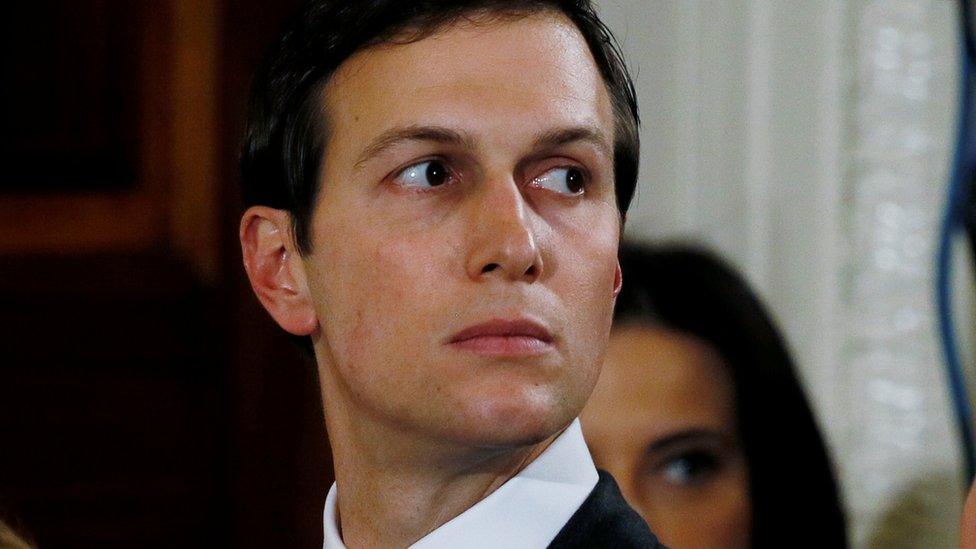
Reports allege Jared Kushner wanted to set up secret communications with Moscow
Mr Cohn's remarks at the podium on Friday were part of the president's effort to exert the nation's strength - without apology.
Mr Trump and his aides tried to show prowess during their European tour, a trip marked by challenging logistics, cultural mishaps and suspicions the president's son-in-law had unusual ties with Russian officials.
On Saturday, Mr Cohn and Gen McMaster held another briefing and were asked repeatedly about the president's son-in-law. Mr Cohn paced the stage and said the subject never came up during the president's meetings.
It was the end of a long week. Flying from Belgium to Italy, Mr Cohn had worked on Air Force One until late in the night, scribbling notes. (In Taormina he carried around a black, felt-tip pen and a slip of paper.)
Light switches and door handles
And despite the We're-In-Charge-Here message, the president and his aides seemed a bit lost at times.
One morning in Brussels, Mr Trump stood stiffly in the hallway of a mansion and glanced out the door. When he saw reporters, he turned his back to us. During a Nato ceremony he looked like a seventh-grader at a school assembly. His legs were tucked under the chair, and he stared at his hands.
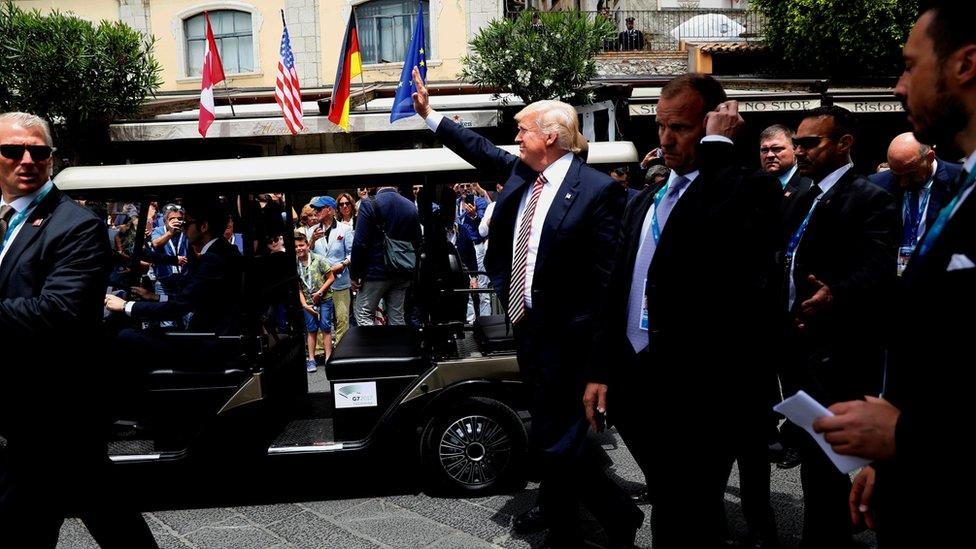
Crowds in Italy turned out to catch a glimpse of Mr Trump
Meanwhile his aides struggled with narrow European streets, light switches and door handles. One senior staffer searched in vain for a door handle at an entrance to a building on an 18th-Century estate (the brass handle was located in the centre of the door - not on the side).
Others complained about cheese puffs (too many carbs) and clocks (there were none in the rooms of an Italian hotel).
At one point a secret service agent, red-faced and angry, raced behind the motorcade down a Sicilian road with restaurants and gift shops (one store had a black, child-sized Godfather T-shirt on display) and tried to keep things under control.
The street and its sharp corners made it harder for the secret service agents to stay close to the motorcade. Meanwhile Italians crowded near the vehicles, taking photos, and a dog barked wildly. Despite the noise and chaos, the president stayed on course.
Throughout the trip the president showed he believes the United States is the centre of the world - and will set its agenda. Europeans may complain, but Mr Trump and his aides will simply move on.
- Published21 May 2017
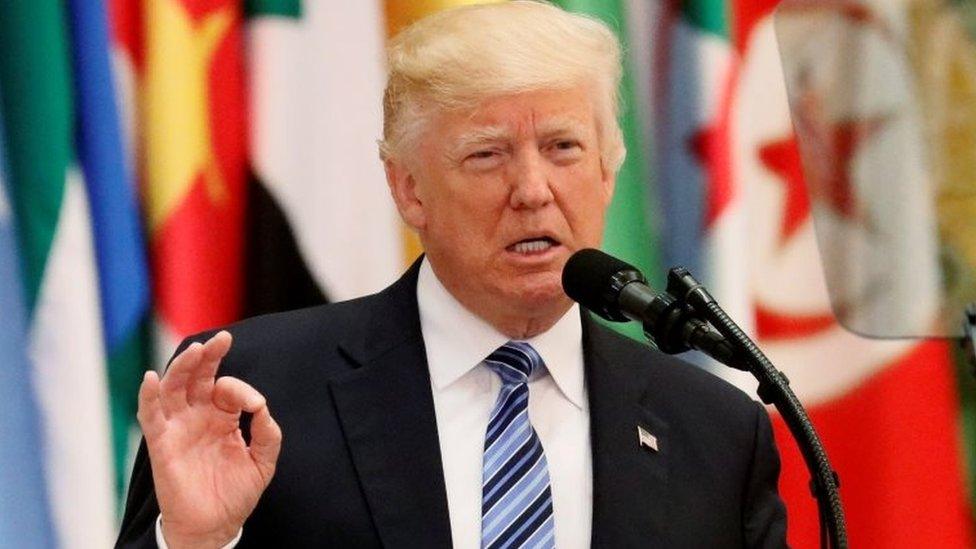
- Published25 May 2017
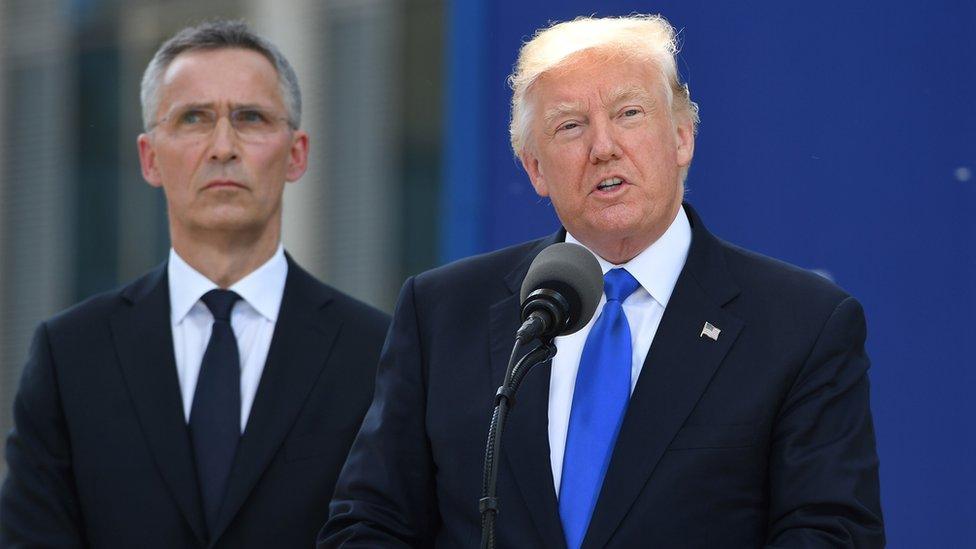
- Published25 May 2017
